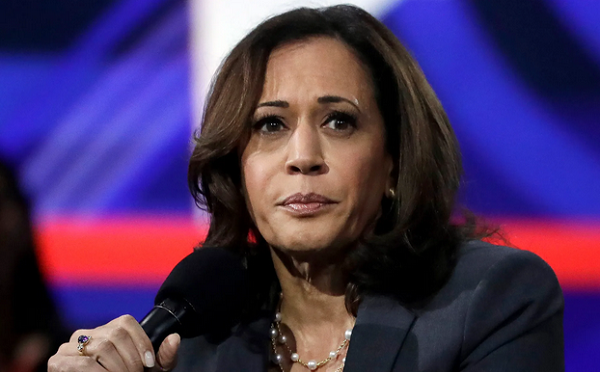Black people of Milwaukee excited over Kamala Harris’s run for president
As recently as a month ago, the U.S. Democratic Party had a potentially ruinous problem on its hands: Black voters, who had helped propel President Joe Biden to victory in the 2020 election, appeared less enthusiastic about him ahead of this year’s vote. And polling showed a small but significant proportion of them throwing their support behind former president Donald Trump.
Now Mr. Biden, an 81-year-old white man whose mental fitness had become a matter of debate, has been replaced as the Democratic nominee by a 59-year-old woman whose heritage is Black and South Asian.
Mr. Biden’s decision late last month to drop out of the presidential race and endorse Vice-President Kamala Harris to succeed him has reset expectations. Although early polling shows a modest resurgence for the Democrats, including among Black Americans, those gains are still uncertain.
Ms. Harris has yet to define her views on many key issues, making it hard to know the extent to which her candidacy will sway voters. But there are signs of renewed enthusiasm among supporters. Angela Lang, executive director of Black Leaders Organizing for Communities, a civic engagement organization headquartered in Milwaukee, the largest city in the key electoral battleground state of Wisconsin, said Ms. Harris becoming the nominee has “absolutely” injected new life into the race.
She added that while some Black voters had expressed disappointment over the slow progress of specific issues relevant to them – such as the George Floyd Justice in Policing Act and the John Lewis Voting Rights Advancement Act, both of which have stalled in Congress – waning support for the Democratic Party had not generally meant a shift toward Republican values. Rather, voters had said they were feeling less motivated to vote at all.
Now, she said, “people are saying that they’re excited.”
“There are young folks that were thinking of sitting this election out that are now coming back and excited to actually vote. The conversations are easier, [canvassers] aren’t seeing the same eye rolls as before.”
Stella Owens exemplifies the challenge facing Democrats in Wisconsin.
Ms. Owens, a resident of Milwaukee, is among the roughly 40 per cent of the city’s population that identifies as Black. She said she voted for Mr. Biden in 2020, and Barack Obama before that. Outside the Republican National Convention in Milwaukee last month, she was selling merchandise bearing Mr. Trump’s likeness, which she said was strictly for business reasons.
But Ms. Owens, interviewed in mid-July as pressure mounted for Mr. Biden to step aside, said she wasn’t sure she would make it to the polls in November. Despite despising Mr. Trump and his policy positions, the grandmother and entrepreneur said she simply wasn’t excited about voting for Mr. Biden again.
“The honest to God truth is that when it comes time to vote, I’m probably not even going to want to vote, and that’s not good,” she said.
Wisconsin has leaned Democratic since 1988 – a streak broken in 2016 when Mr. Trump won the state by just 0.7 percentage points over Hillary Clinton. It returned to the Democratic fold in 2020, when Mr. Biden eked out a margin of 0.63 percentage points over Mr. Trump.
While Black Americans remain overwhelmingly Democratic, Black voters’ support for the party fell about five percentage points in 2024, to 83 per cent, compared with 88 per cent four years ago, according to a study by the Pew Research Center released in May. The same study found that about half of Black voters would have replaced both Mr. Biden and Mr. Trump with different candidates if they could have – a sentiment shared by a similar proportion of all voters surveyed.
In July, days after securing the pledged support of enough Democratic Party delegates to become her party’s nominee for president, Ms. Harris’s first rally was in Milwaukee, where she told attendees they played a critical role in pushing the 2020 Biden-Harris ticket to victory.
“The path to the White House goes through Wisconsin,” she said. On Wednesday, she returned to the state again for a campaign rally with her newly named running mate, Tim Walz.
Polling in the days after Mr. Biden’s exit has shown a possible shift in Ms. Harris’s direction among Black voters. A nationwide poll conducted for CNN at the end of July found that 78 per cent of Black respondents supported Ms. Harris over Mr. Trump, whereas Mr. Biden had 70-per-cent support among the same group of voters in April and June. Other surveys showed similar increases.
And a New York Times/Siena College poll conducted earlier this month found that Ms. Harris has improved on Mr. Biden’s position in three swing states: Wisconsin, Michigan and Pennsylvania. Where previous polls showed Mr. Biden trailing Mr. Trump, or virtually tied with him, the new survey found Ms. Harris with a four percentage point lead in each state, among likely voters.
Andrea Benjamin, an associate professor in the University of Oklahoma’s Clara Luper Department of African and African American Studies, said what Ms. Harris’s campaign has accomplished in recent weeks shows that her ascension has breathed new energy into the race.
In just one week, the campaign raised US$200-million and signed up more than 170,000 volunteers. But Prof. Benjamin said the campaign still needs to tap into established networks on the ground to show that community concerns are being heard. A 2023 issues poll by the Centre for Excellence in Polling found that 90 per cent of voters in Wisconsin are concerned about the cost of living, for example.
Among Black voters, Prof. Benjamin advised clear, specific messaging on progress made under the Biden-Harris administration, such as commitments to reduce maternal mortality – which affects Black women at three times the rate among white women.
“What makes people vote is feeling like they are being heard, and that the issues that they value, and that are important to them – that there is a plan to address them,” she said.
With a report from Reuters













